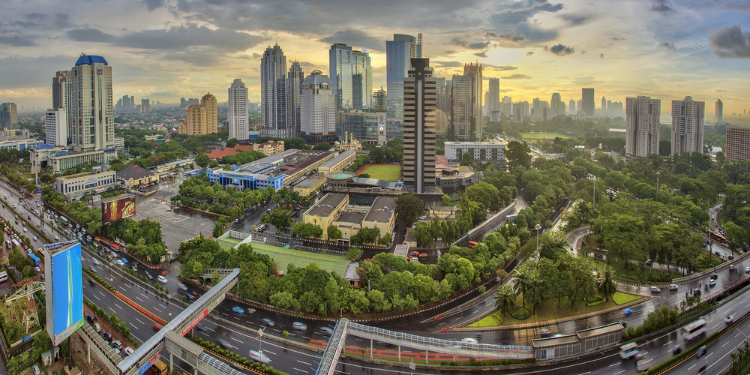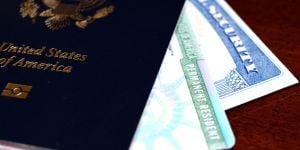
Indonesia is currently implementing new strategies to support the strong economic recovery observed in 2022. In addition to reforming its economy and encouraging innovation, the government is counting on wealthy and skilled foreigners. The health crisis has turned the organization of work upside down, and digital nomadism is at its peak. As a country that aims to become one of the top 5 largest economies by 2045, Indonesia is also luring wealthy investors.
Golden visa for wealthy expatriates
This is one of 6 measures introduced by Indonesia's Directorate General of Immigration to speed up immigration. While some countries, notably in Europe, are canceling their Golden Visa programs, Indonesian President Joko Widodo is betting on it to attract wealthy foreigners. This new program was announced on May 29 by Sandiaga Uno, Minister of Tourism and Creative Economy.
The Indonesian Golden Visa is intended for foreign investors. The government hopes to attract foreign talent in digital and innovation, new technologies, research and healthcare, which are the most dynamic economic sectors. The government is also relying on these foreign investors to boost the job market and economic growth, particularly in Bali and other tourist destinations. Sandiaga Uno forecasts 4.4 million jobs in tourism and the creative economy by 2024.
The Indonesian government has also promised a series of benefits for wealthy expatriates: 5- or 10-year visas, simplified immigration procedures, accelerated access to citizenship, multiple-entry visas, access to property ownership, etc. Further details, including the minimum investment required, will soon be provided. Bahlil Lahadalia, Minister of Investment and head of the Investment Coordination Board suggests, by way of example, that "an investment of 30 to 40 billion rupiah (between 2 and 2.6 million dollars)" could open the doors to the Golden visa for 5 to 10 years.
Digital nomad visa in Bali
Indonesia has been considering the introduction of a digital nomad visa for a while. This has been confirmed by Bali's announcement of the creation of a 5-year digital nomad visa. This tourist city is counting on its excellent reputation with international travelers. Remote working has been gaining ground since the global health crisis. Many popular tourist destinations have developed digital nomad visas to attract this new generation of workers who, above all, contribute to the local economy through their expenses.
Sandiaga Uno is confident in his strategy. According to him, the digital nomad visa should bring in 3.6 million international tourists and create 1 million jobs for Indonesians. Indeed, the principle of digital nomadism is of great interest to governments: digital nomads don't work for a local company but for a foreign one. They have the necessary funds to support themselves in the country and have their own health insurance (these points are part of the standard requirements for applying for a digital nomad visa). The profile of these new workers is similar to that of tourists: they don't depend on the State but, on the contrary, contribute to the economy.
Bali is proposing a tax exemption to attract these international remote workers, but only for those working exclusively abroad. The government considers its plan to be more advantageous than others: few countries grant a 5-year visa. The executive wants to make life easier for digital nomads by considering travelers' new aspirations. And since it's impossible to ignore the environmental urgency, Sandiaga Uno reassures that his strategy takes ecology into account, with a sustainable approach and the development of ecotourism.
"Xpats Gateway": Fast-tracked recruitment of skilled expat
Immigration programs are speeding up, and so are recruitment measures. From June 15, companies will no longer have to wait 3 months to recruit highly qualified expatriates, as announced by Rafizi Ramli, Minister of the Economy.
To achieve its new objective, the government will introduce a "one-stop-shop approach" (also from June 15). Until now, around 11 departments processed work visa applications. This was far too many, causing delays and ever longer lead times for hiring qualified foreigners - up to 80 days, depending on the sector. The new approach will considerably reduce delays. The executive branch aims for 5 days for a visa application and approval (compared to the current average of 30 days). Companies will have to wait just 14 days to publish job offers when positions are not filled (compared with 30 days on average). All in all, the entire recruitment process for qualified expatriates should be reduced to around 20 days, compared with 3 months at present.
However, the government clarified that the new system will be rolled out in stages. The immigration services, which currently use their own system, will gradually roll out the "Xpats Gateway". An additional effort will be made in the digital sector, one of the most dynamic internationally. Every month, Indonesian immigration authorities register over 5,000 applications for visas to work in the digital sector.
Second home visa
At the end of 2022, the Indonesian government announced the creation of a new visa, the "Second home visa". This is a long-term visa, enabling wealthy expatriates to stay in the country for 5 to 10 years. But do not confuse it with the recently introduced Golden visa! The golden passport is intended for wealthy investors, unlike the Second Home Visa, accessible to all high-income earners. Applicants must have at least $130,000 in their bank account to be eligible, but there are no investment requirements.
However, the visa attracted fewer expatriates than expected. Hence the creation of the Golden visa and the Digital nomad visa to broaden the range while targeting specific audiences: investors, entrepreneurs (many digital nomads are self-employed) and wealthy retirees.




















Comments
1Most wealthy expats would go to Singapore not Indonesia